
Dragon’s Dogma 2 boasts one of the finest combat systems in the RPG genre, staying true to the D&D essence with its classes, known as Vocations. Each vocation offers distinct abilities and gameplay styles. In Dragon’s Dogma 2, there are no inherently inferior vocations; the choice ultimately hinges on your preferred combat style. If you’re undecided on which vocation or class to select, fear not. Here’s a comprehensive guide to Dragon’s Dogma 2 Vocations.
What Do Vocations Represent in Dragon’s Dogma 2?

Vocations in Dragon’s Dogma 2 define the classes, each offering a unique combat style and set of skills. The game categorizes Vocations into three types: Base, Advanced, and Hybrid.
1. Base Vocations: These include Fighter, Thief, Mage, and Archer. Available from the start, players can select these Vocations right away.
2. Advanced Vocations: Warrior and Sorcerer are advanced versions of the base Vocations Fighter and Mage, respectively.
3. Hybrid Vocations (Exclusives): Mystic Spearhand, Magick Archer, Trickster, and Warfarer blend aspects of the base Vocations and are exclusive to the Arisen, the player character.
How Many Classes Exist in Dragon’s Dogma 2?
At launch, Dragon’s Dogma 2 features 10 vocations: Fighter, Thief, Mage, Archer, Magick Archer, Sorcerer, Warrior, Mystic Spearhand, Trickster, and Warfarer. Additional classes may be introduced in future updates.
While each vocation boasts unique abilities, some vocations share skills and augments. Hybrid and advanced vocations often share skills with their base vocation counterparts.
All Vocations (Classes) in Dragon’s Dogma 2
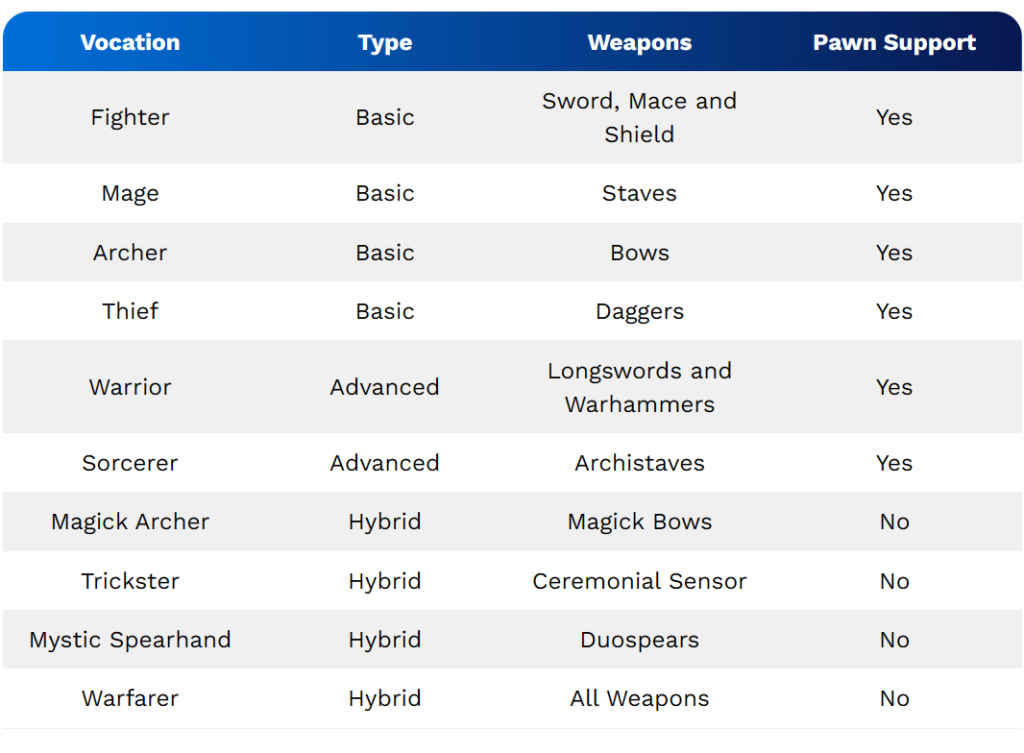
1. Fighter: A Good Blend of Defense and Offence

The Fighter vocation in Dragon’s Dogma 2 excels in robust defensive capabilities and counterattack prowess. Fighters wield one-handed swords, maces, and shields, offering a balanced mix of offense and defense. This vocation enables players to absorb powerful enemy assaults while delivering significant damage with swift, forceful strikes. If you relish close combat and enjoy retaliating against foes, the Fighter is an ideal choice.
Reasons to Choose the Fighter Vocation: Exceptional tankiness, capable of blocking most attacks. Ability to counterattack enemies after well-timed blocks.
Reasons to Avoid the Fighter Vocation: Unable to deal Magick Damage, requiring Magick weapons or elemental boons from mages to damage physically resistant enemies. Lack of ranged spells.
2. Mage: Strong Support And Range Skills
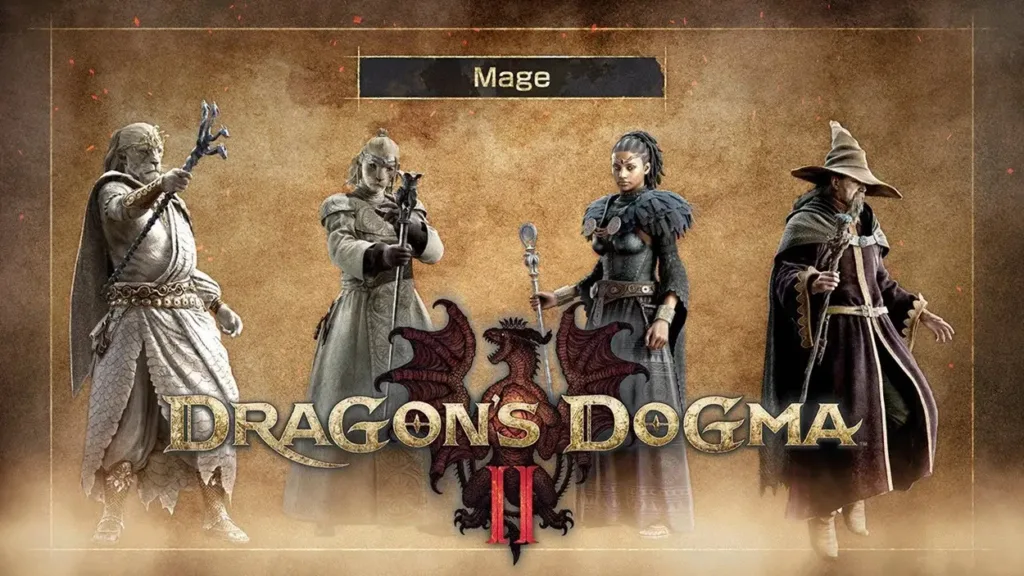
The Mage vocation in Dragon’s Dogma 2 excels at providing team support and unleashing potent magical attacks. Mages can heal, bestow elemental boons, and cure status ailments for allies. They also wield powerful offensive spells across various elements. Having a Mage in your party is crucial if you’re low on healing items and elemental weaponry. Additionally, Mages can utilize core skills to levitate in the air.
Reasons to Choose the Mage Vocation: Proficient in powerful ranged spells and diverse elemental attacks. Vital for their strong support abilities, making them essential in any party composition.
Reasons to Avoid the Mage Vocation: Vulnerable to attacks while casting spells, with low physical defense and health. Some Mage spells have long casting times, which can be problematic in close combat situations.
3. Archer: Devastating Range Attacks
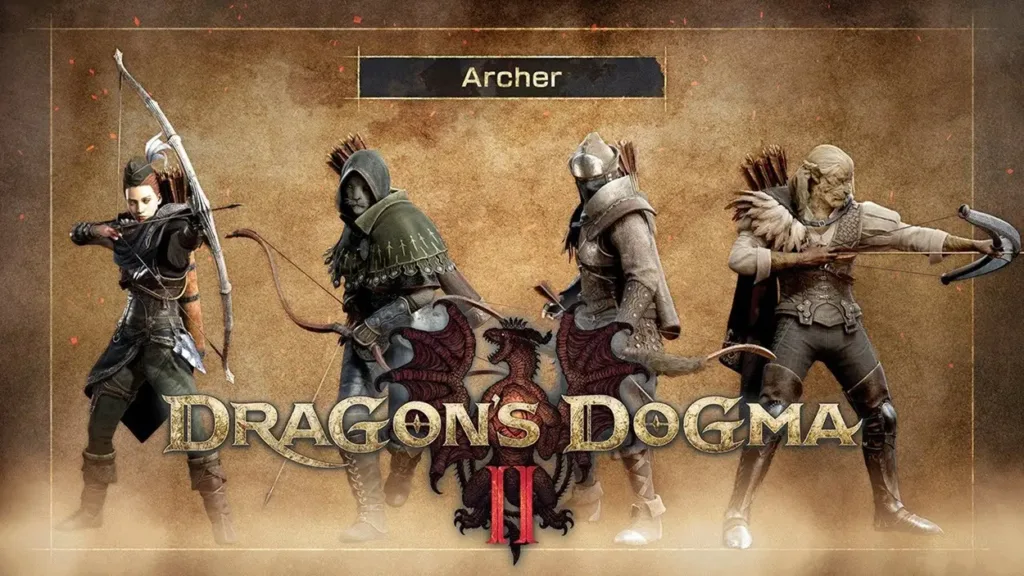
The Archer vocation in Dragon’s Dogma 2 specializes in ranged combat using bows and longbows, making them ideal for engaging flying enemies. Archers can also inflict status effects such as Poison and Burn on enemies using their arrow skills. Their precision allows them to target enemy weak spots, such as heads, effectively increasing their damage output.
Reasons to Choose the Archer Vocation: Strong ranged attacks, capable of targeting enemy weak spots from a safe distance. Ability to apply status effects on enemies.
Reasons to Avoid the Archer Vocation: Weak in close combat, susceptible to stamina depletion if skills are overused.
4. Thief: Fast, Stealthy and Lethal
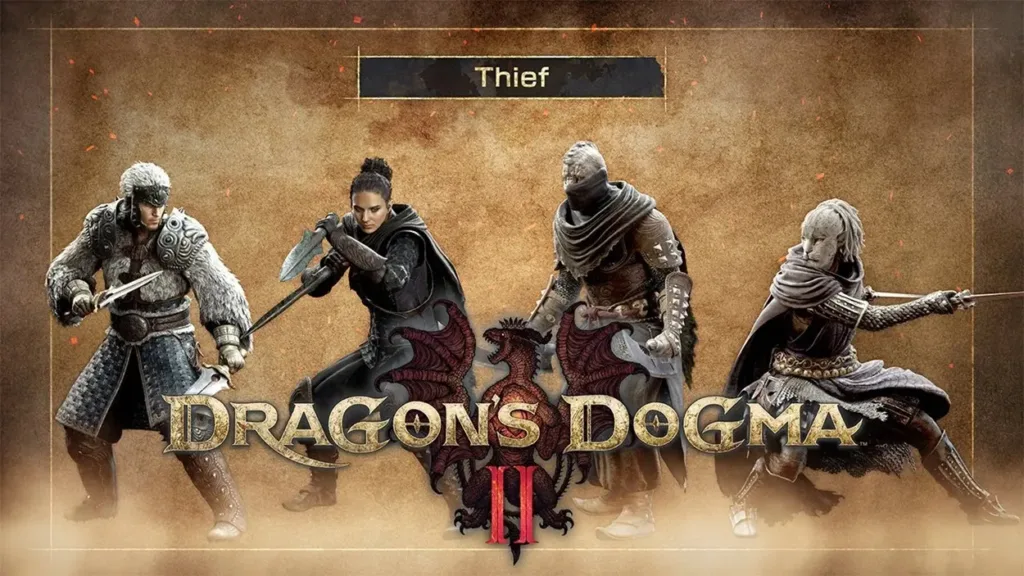
The Thief vocation in Dragon’s Dogma 2 excels in nimble combat, employing dodge rolls and climbing on foes to target vulnerable areas and inflict substantial damage. Thieves excel in swift melee engagements, particularly in climbing large foes.
With the ability to dodge, Thieves cater to players who prefer evasion over blocking, offering a range of stealthy skills.
Reasons to Choose the Thief Vocation: Exceptional speed and stealth, adept at climbing enemies and targeting weak spots. Ability to roll and dodge enemy attacks.
Reasons to Avoid the Thief Vocation: Similar to Fighters, Thieves struggle against Magick Damage, requiring magick weapons or elemental boons from mages to overcome physical resistance. Vulnerable defensively and lack ranged skills.
5. Warrior: Knockdown Specialist
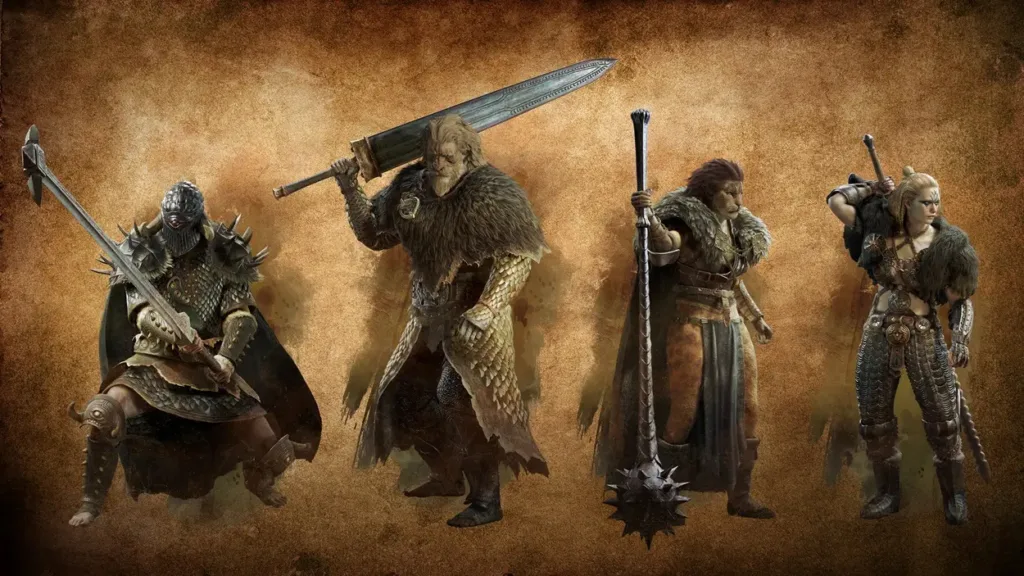
The Warrior vocation in Dragon’s Dogma 2 focuses on delivering powerful, staggering blows to enemies, capable of easily toppling even the largest foes with charged attacks. Warriors also possess taunt skills, ideal for drawing enemy attention and ensuring party safety. If you enjoy the thrill of knocking down formidable adversaries, executing potent attacks, and diving headfirst into battle, the Warrior vocation is tailor-made for you.
Reasons to Choose the Warrior Vocation: Exceptionally durable with high health, ideal for soaking up damage. Proficient at knocking down enemies, leaving them vulnerable to increased damage. Can carry heavier loads compared to other vocations.
Reasons to Avoid the Warrior Vocation: Slow movement speed and lack defensive options like blocking or dodging, as seen with the Fighter and Thief vocations. Limited ranged combat abilities.
6. Sorcerer: Strong Offensive and Crowd Control Spells
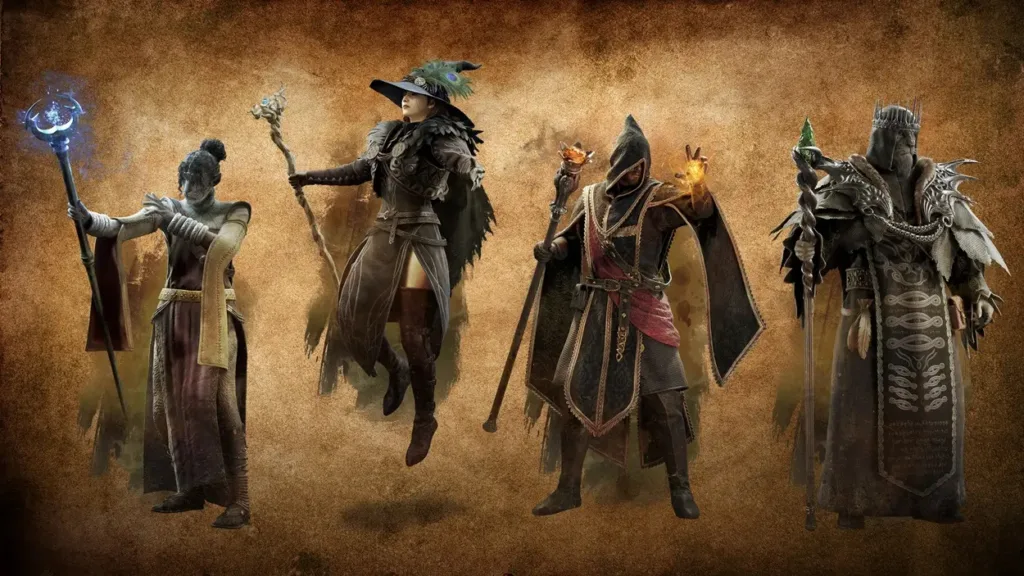
The Sorcerer vocation in Dragon’s Dogma 2 specializes in offensive magic, focusing on dealing immense damage with spells and offering limited support abilities compared to the Mage. If you enjoy unleashing powerful spells with high damage potential, the Sorcerer is an ideal choice. Sorcerers can also levitate in the air, similar to Mages.
Reasons to Choose the Sorcerer Vocation: Ability to deal significant damage with offensive spells. Features crowd-controlling spells, capable of causing chaos among enemies. Offers the satisfaction of casting devastating spells like summoning meteors.
Reasons to Avoid the Sorcerer Vocation: Lacks healing abilities, providing only offensive support. Vulnerable in close combat and suffers from long spell-casting times.
7. Magick Archer: Strong Ranged Attacks and Support Skills
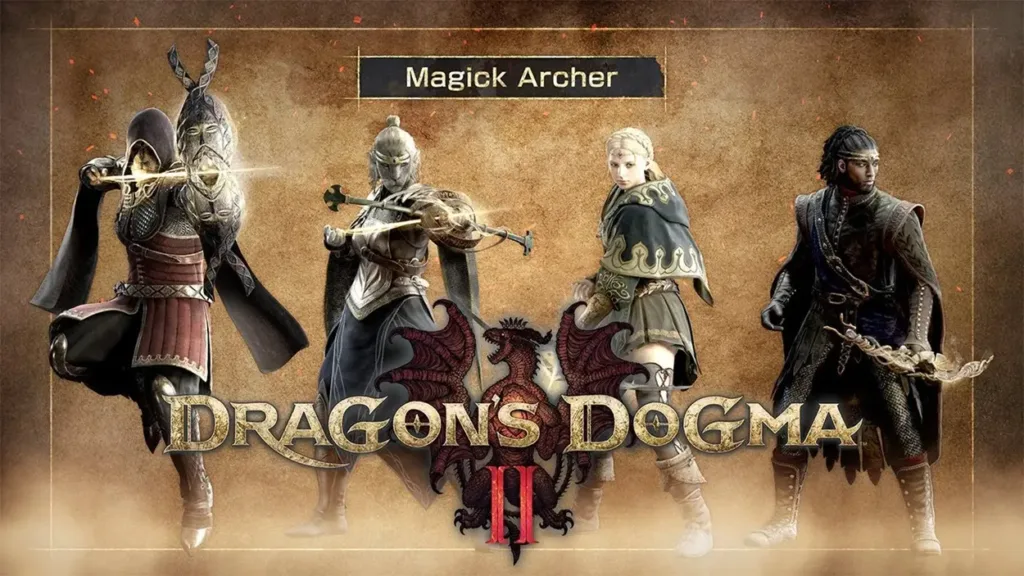
The Magick Archer vocation in Dragon’s Dogma 2 is a hybrid class, combining the ranged prowess of the Archer vocation with the magical abilities of the Mage and Sorcerer vocations. Magick Archers excel at dealing immense damage, often overpowering most encountered enemies. They also possess a variety of support skills, including healing and long-distance revival abilities.
Reasons to Choose the Magick Archer Vocation: Exceptionally potent at dealing damage to all enemy types. Boasts powerful long-range attacks and the ability to heal allies.
Reasons to Avoid the Magick Archer Vocation: Weak in close combat situations. Prone to stamina depletion, similar to the Archer vocation.
8. Trickster: Pacifist, Amplifier, Scout
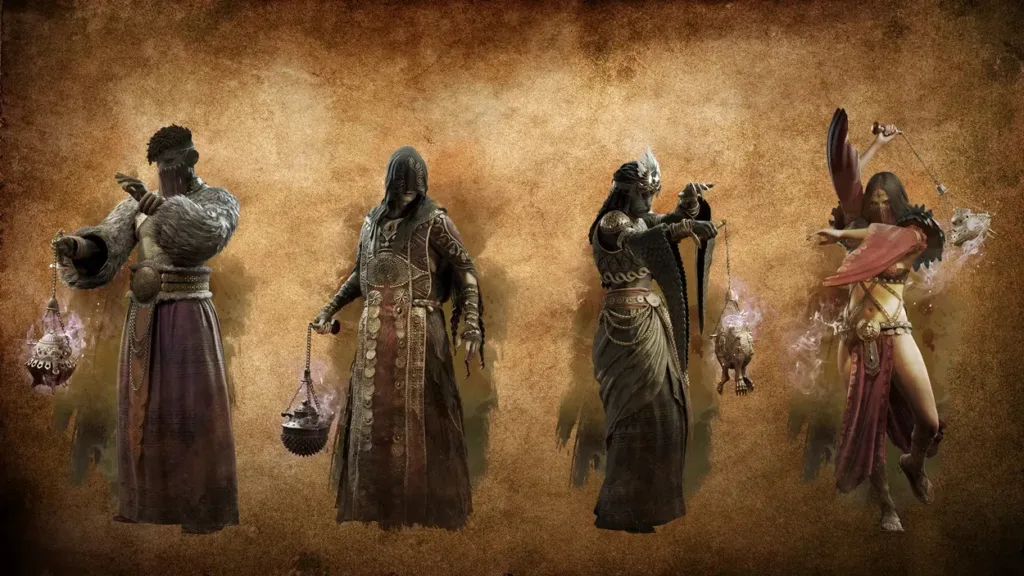
The Trickster vocation in Dragon’s Dogma 2 is a unique class that focuses on supporting allies and disrupting enemies rather than directly dealing damage. Tricksters excel at buffing allies, debuffing enemies, and employing crowd-control tactics, including tricking enemies into falling off cliffs. They can also astral project, allowing players to scout ahead before engaging enemies in combat.
Reasons to Choose the Trickster Vocation: Ideal for players who enjoy playing as pacifists and enjoy trolling enemies. Features powerful crowd-control skills.
Reasons to Avoid the Trickster Vocation: Highly reliant on allies for damage output and cannot deal damage independently. Challenging to use in enclosed spaces where enemies cannot be maneuvered off cliffs.
9. Mystic Spearhand: Strong Ranged and Melee Skills
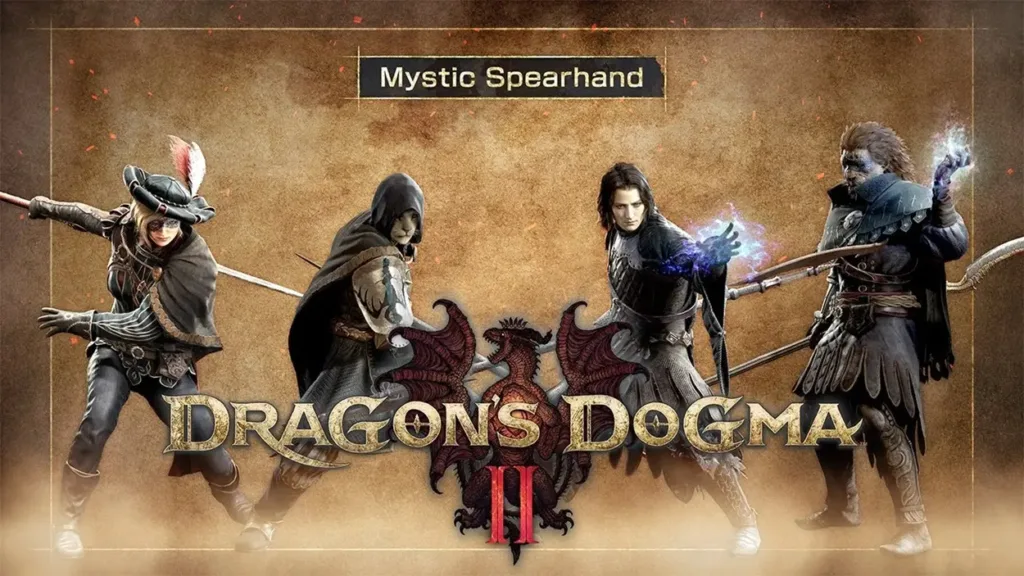
The Mystic Spearhand vocation in Dragon’s Dogma 2 combines melee and magickal abilities, allowing players to excel in both close-quarters and ranged combat. Mystic Spearhands specialize in agile movements, including dashing and teleporting, enabling them to swiftly navigate the battlefield and evade enemy attacks. They can also utilize elemental skills and create magickal duplicates to attack foes. Additionally, Mystic Spearhands can levitate nearby objects, including defeated enemies, and hurl them at their adversaries.
Reasons to Choose the Mystic Spearhand Vocation: Offers a blend of physical and magickal attacks. Excels in maneuverability, with abilities to dodge and teleport through enemies.
Reasons to Avoid the Mystic Spearhand Vocation: Requires quick reflexes due to lower health, presenting a challenging learning curve.
10. Warfarer: Jack of All Trades
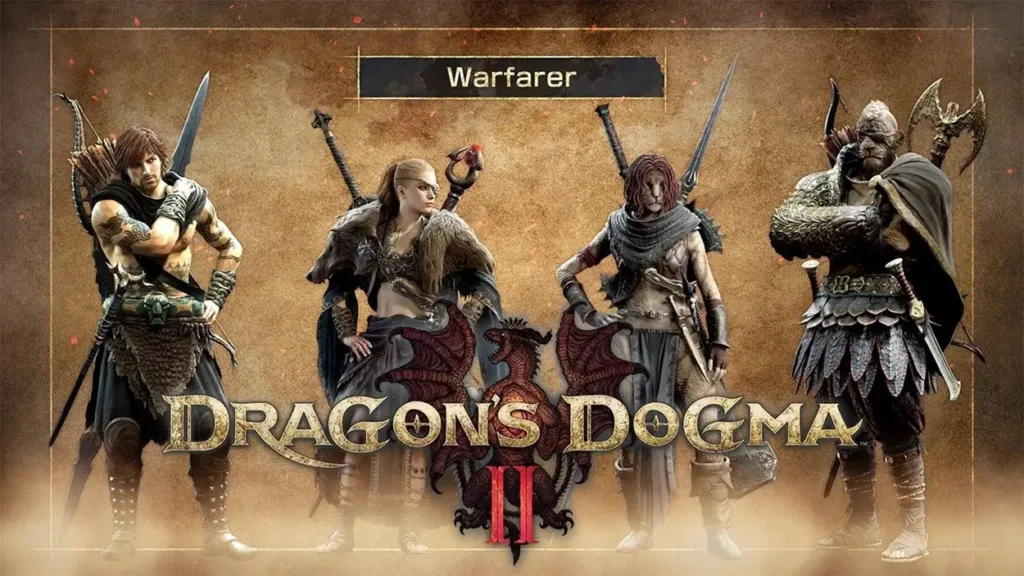
The Warfare vocation in Dragon’s Dogma 2 offers versatility, allowing players to wield all available weapons and learn skills from various classes. This grants players the freedom to adapt their weapons and skills to suit any combat scenario. However, Warfarers cannot access the most advanced skills from each vocation, serving as a jack-of-all-trades but master of none.
Reasons to Choose the Warfare Vocation: Provides complete freedom in combat, enabling the use of any weapon suitable for the situation. Also it Allows the use of skills from all other vocations, enhancing adaptability.
Reasons to Avoid the Warfare Vocation: Unable to master the skills of any specific vocation and can become overwhelming with the multitude of choices available.
Changing Vocations in Dragon’s Dogma 2: A Guide
Selecting or changing vocations in Dragon’s Dogma 2 is straightforward. At the beginning of the game, players choose one of the base vocations—Fighter, Archer, Mage, or Thief. They can stick with this vocation and level it up or switch to another vocation later.
To change vocation, players need to locate vocation guilds in major cities or towns around the world. These guilds allow players to switch vocations and purchase new skills and augments once they reach a certain vocation level.

Dragon’s Dogma 2 introduces the Vocation Maister system. NPCs who have mastered specific classes are designated as Vocation Maisters. Players must build a relationship with these Maisters to gain access to their vocations. Currently, it appears that players can only learn hybrid vocations from Vocation Maisters.
Additionally, Vocation Maisters can bestow Special Tomes containing high-level skills known as Maister’s Teachings, which can only be learned from these Maisters.
Known Vocation Maisters in Dragon’s Dogma 2 include:
1. Lennart (Fighter Maister): Located in the Fortress of Village of Melve.
2. Sigurd (Mystic Spearhand Maister): Instructs in the ways of the Mystic Spearhand Vocation. Location currently unknown.
3. Vermundian (Trickster Maister): Teaches the Trickster Vocation. Location currently unknown.
Leveling Up Vocations in Dragon’s Dogma 2: A Comprehensive Guide
In Dragon’s Dogma 2, there are two distinct leveling systems: Character Level and Vocation Level. Vocation Level represents the mastery a player or pawn has over their chosen vocation, unlocking new skills and augments specific to that vocation.
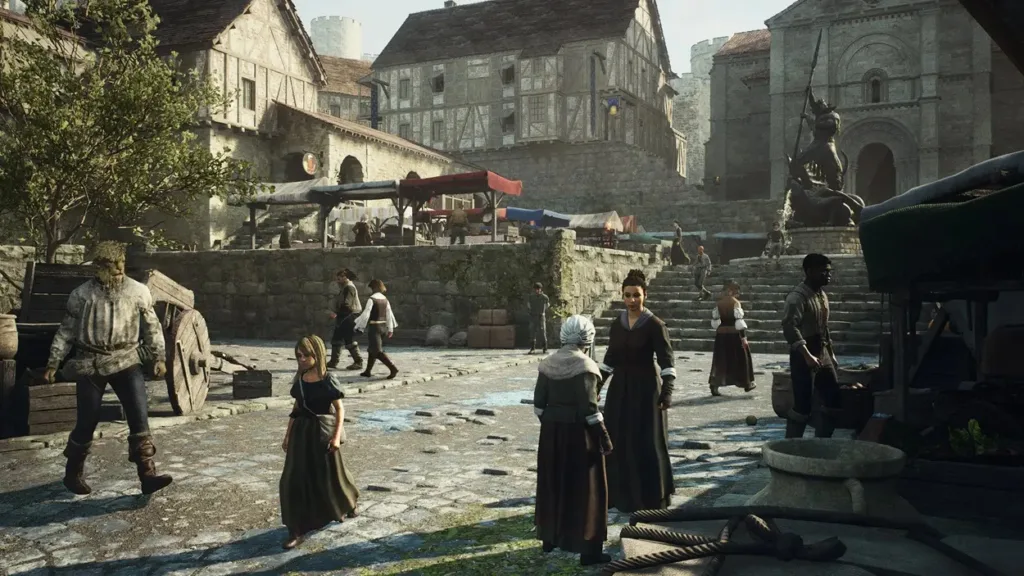
To increase Vocation Level, engage in combat with enemies in the open world. The more battles you participate in, the faster your vocation will level up. Similar to the first game, Vocation points are earned based more on the number of enemies defeated rather than their strength. Therefore, defeating a large number of weaker enemies will level up your vocation faster than defeating a small number of strong enemies. This system is expected to remain similar in the sequel.



